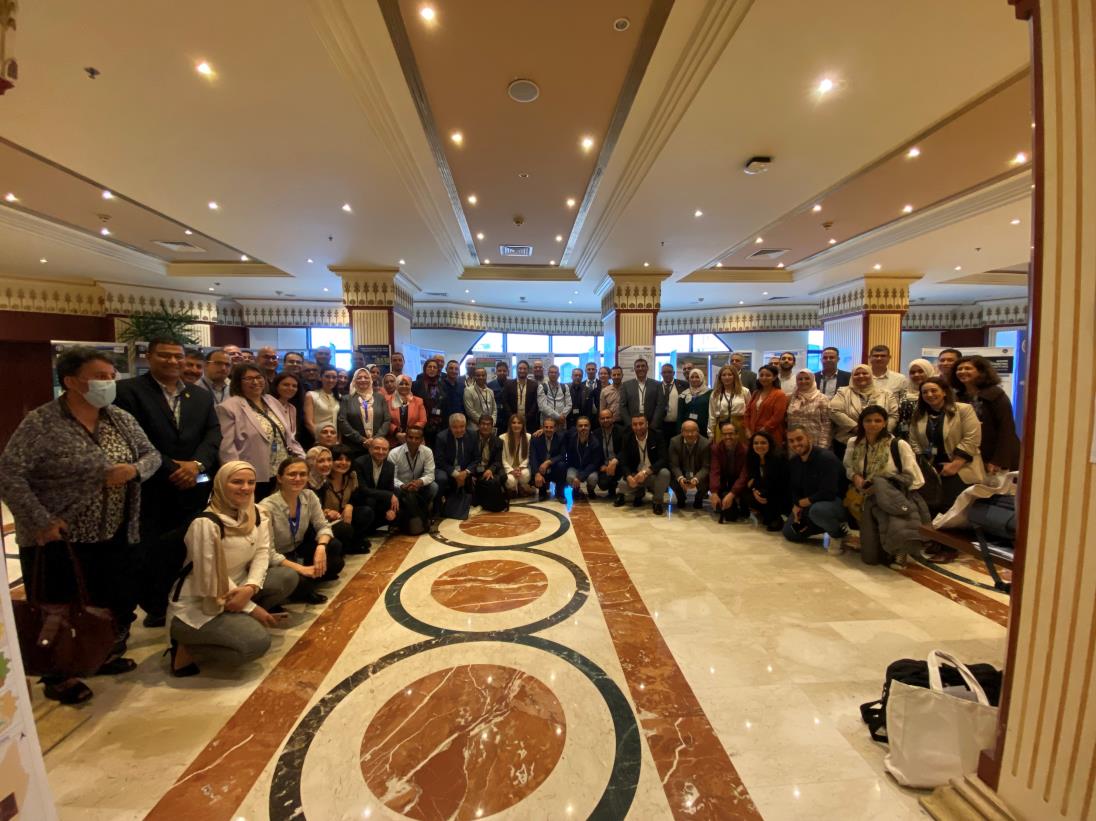Water practitioners from the NENA region meet for the Regional Water Accounting Synthesis Workshop in Alexandria, Egypt.

Water accounting has been a topic of interest for the Food and Agriculture Organization of the United Nations (FAO) for the last 20 years. Water accounting is being used to (i) set sustainable limits of consumption; (ii) make the best use of every drop of water, including non-conventional water resources; and (iii) adopt an analytical framework on the water-food-energy-climate-ecosystems nexus for better coherence of strategies and politics.
The NENA region have always managed development with scarce water. However, with human development, urbanization and agriculture strategies and plans, the unbalance between demands and resources is worsening. Climate change is adding uncertainty on the map when water resources are not anymore guaranteed on time and volume. The recent droughts in Maghreb and floods in other countries show that business as usual in water management is not possible.
Decisions makers have been directing water allocation accepting a lot of unknown. Today, the need to do more with less require to reduce the uncertainty and acknowledge the reality (what is really consumed?). This is why water accounting become a needed tool for planning. Monitoring and informing strategies. It aims to answer to questions -What is the status of my resources, what are the needs, what is already covered and where are the gaps etc.
It provides a systematic information for a given boundary in time and space.FAO has implemented from the 15th to 17th of May 2022, a Regional Water Accounting Synthesis Workshop for 70 water practitioners from the NENA region, specifically the eight project countries: Algeria, Egypt, Iran, Jordan, Lebanon, Morocco, Tunisia and Palestine.

The regional workshop aimed to bring the lessons learned at a higher level by bringing together water accounting producers, the water accounting analysts and the decision makers using the water accounting results. The workshop reviewed results and lessons and discussed the institutionalization of the approach.
It also reflected on future prospects for water accounting for operationalizing and institutionalizing the approach in the NENA region.
“It is with the regional ‘Water Efficiency, productivity and Sustainability (WEPS-NENA)’ project that the need for standardization of the implementation of water accounting was felt necessary.” said Abdulhakim Elwaer, Assistant Director General and Regional Representative for the Regional Office for the Near East and North Africa. The approach proposed is a step-wise approach starting with rapid assessment and moving on to more exhaustive and detailed water accounting if and when critical uncertainties need to be reduced. The project promote capacity strengthening for the institutions responsible for informing strategic planning and modernization of the water and agriculture sector. The final aim being to leave the countries with a pool of experts and tools/approaches tailored to country realities. The project guide the tailoring of water accounting systems to country context.

This means that piloting and experimenting are necessary as well as reviewing critically the information system in place. In their concluded remarks, most of the countries representatives indicated their interest to institutionalize water accounting but will go through a step wise process to do so.
One day prior to the synthesis workshop, a field visit was organized to see different farming systems – traditional surface irrigation enhanced with solar pumping stations to bring water from the canals to the water users and one smart irrigation farm where every drop is guided to the field. The field trip aimed to illustrate some of the activities and projects related to water accounting in Egypt.
This training is implemented under the regional project “Implementing the 2030 Agenda for water efficiency/productivity and water sustainability in NENA countries”. This project is funded by the Swedish International Development Cooperation Agency.
